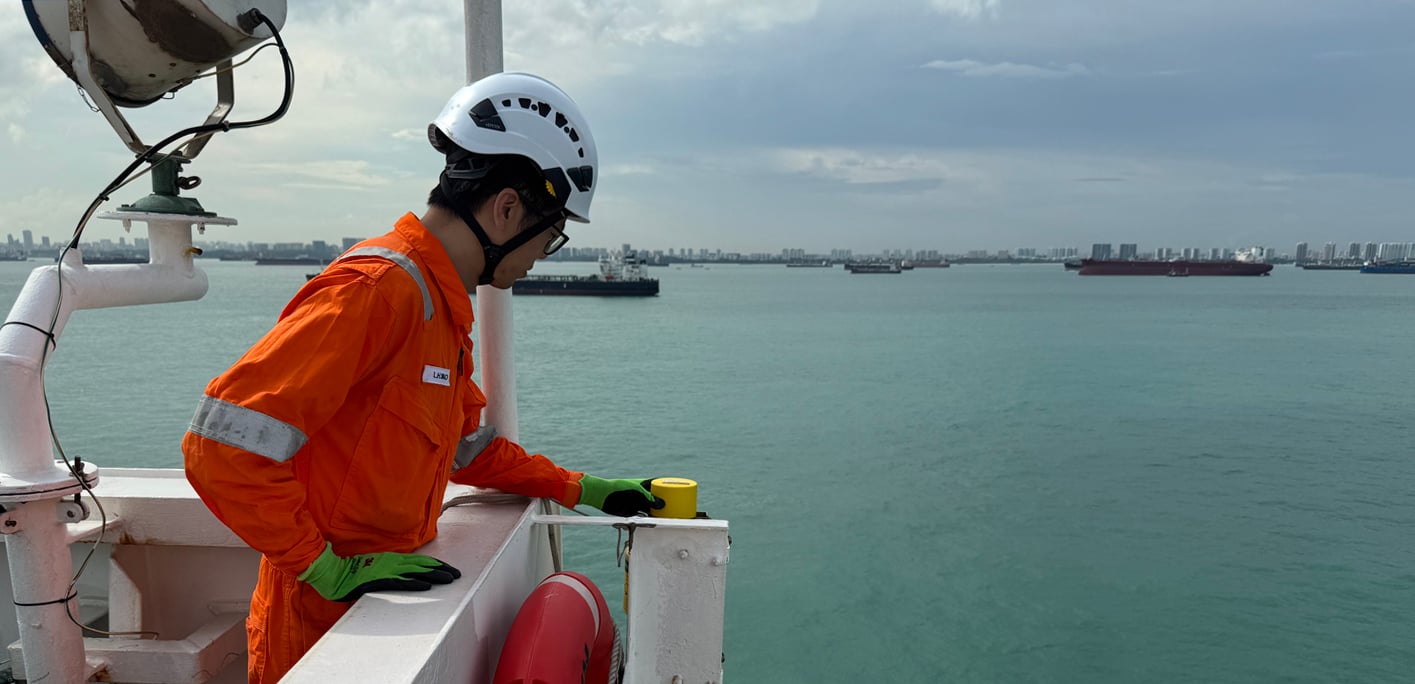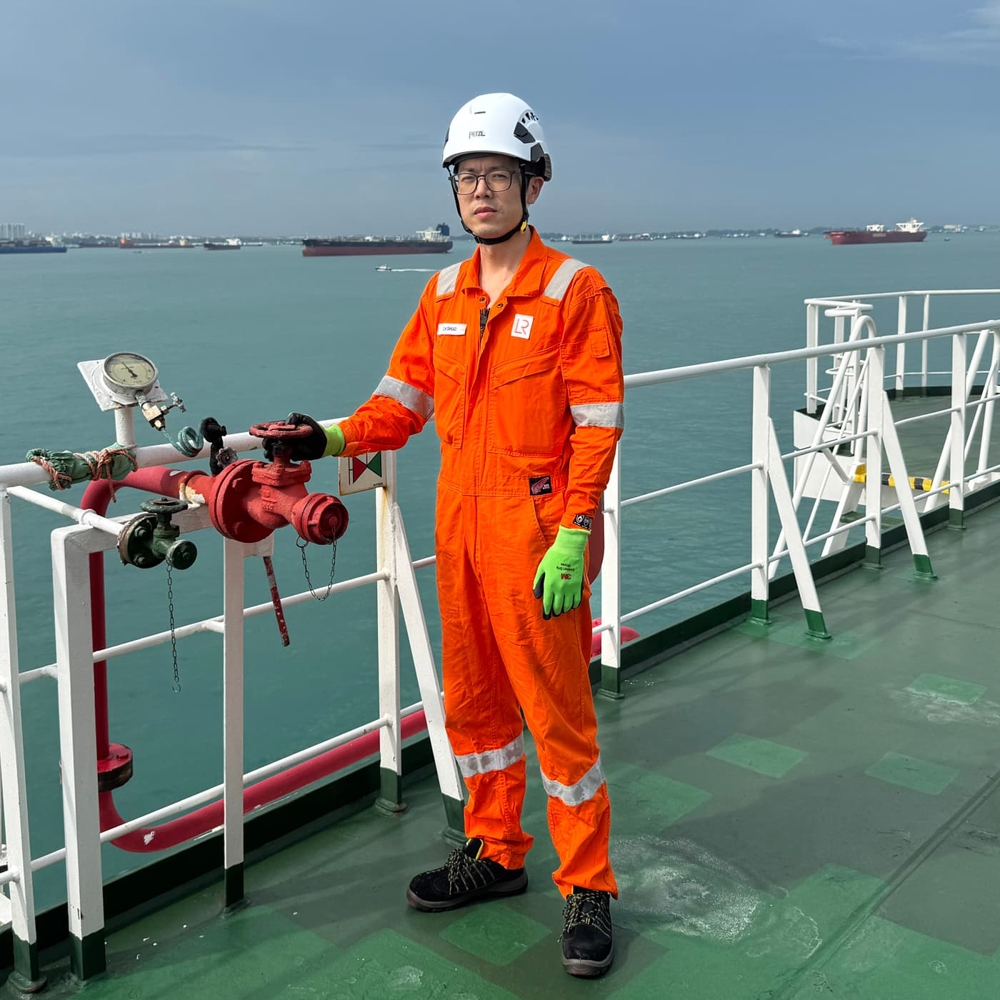Shipping has always been a part of Ling Hua Shao’s life. Born and raised in Zhoushan, China, one of the world’s key ship repair hubs and a major container port, the maritime industry has been on his radar from a young age.
It’s where his career began when, equipped with a degree in mechanical engineering, he gained hands-on experience in vessel construction.
Recognising his potential, LR recruited Shao as a newbuilding surveyor. He started as a site surveyor on a new building project in Zhoushan, and gradually expanded his involvement to include Materials Equipment and Components Certification (MEC) and surveys of existing ships. “China’s shipbuilding market was booming at the time, and I was fortunate to develop my skills across various vessel types,” he recalls. His expertise in project management, inspections, and classification standards allowed him to work on a diverse portfolio of vessels.
One of Shao’s most significant career experiences was his involvement in the construction of a heavy-lift vessel equipped with a 900-tonne crane. The project, which required extensive collaboration between the Dutch shipowner, shipyard and classification experts, is one of the most technically challenging projects he has worked on to date. “We were all learning as we went, mentoring each other and consulting specialists across LR to ensure compliance with unique design and material requirements,” he says.
Shao was given the opportunity to relocate to LR’s Singapore office in July 2020, a move that has exposed him to a fast-paced environment dominated by time-sensitive surveys. As a major maritime hub, he now regularly performs annual/periodical surveys, change-of-flag surveys and ship audits, among other activities.

“In Singapore, the nature of work is different to that in a Chinese yard. Many of our inspections happen at anchorage, often within a limited timeframe. Efficiency and precision are key,” he explains. “Many ships call here only briefly for bunkering and it is within this window that surveyors carry out their surveys, notes Shao, “meaning we often have just 8 to 12 hours to complete our work, even during night shifts.”
The fast-paced nature of these inspections does not mean that quality can be compromised. A cool head and pragmatic approach to all aspects of a survey remain essential, even when time is tight. Surveyors often find themselves balancing regulatory requirements with operational realities, notes Shao, emphasising the importance of constructive problem-solving. “We’re not here to police shipowners. Our role is to ensure safety and compliance while finding practical solutions,” he says.
When faced with challenging situations, he takes a consultative approach, engaging clients in discussions about alternative solutions. “Most of the time, there is a way to meet regulations without disrupting operations. It’s about working together rather than imposing decisions.”
A safe space
Classification societies in Singapore are well-supported by the work of the Singapore’s Maritime and Port Authority (MPA). And as LR’s Singapore Country File Representative, Shao works closely with the organisation on regulatory matters, including technical discussions, new developments, and port state control concerns. “MPA maintains an open-minded approach, prioritising ship safety while working collaboratively with class societies and shipowners,” he explains.
A recent example of this partnership was a discussion on port state control trends in Australia, where the MPA facilitated dialogue to help shipowners understand compliance expectations. “MPA is one of leaders in regional maritime regulation, influencing standards not just in Asia, but globally,” he says.
Client collaboration
One of the most significant advancements in LR’s service delivery has been the introduction of the Global Technical Client Care Centre (GTCC). Shao sees this as one of the most effective organisational changes within LR, streamlining client interactions and ensuring swift technical support.
“The GTCC acts as a central hub for technical queries, allowing surveyors like me to focus on inspections while ensuring clients receive prompt and accurate responses,” he explains.
Shao frequently collaborates with the GTCC, particularly for Singapore’s key clients who require immediate assistance. “Many clients prefer direct conversations rather than email exchanges. If a client reaches out to me first, I often connect them with GTCC experts who can provide detailed technical guidance.”
Beyond just handling queries, the GTCC plays a vital role in enhancing regulatory compliance. By analysing emerging industry trends and consolidating expert insights, the GTCC supports surveyors with informed decision-making, ensuring compliance with evolving maritime regulations. “Their proactive approach to problem-solving strengthens our client relationships and reinforces LR’s reputation for technical excellence,” Shao adds.
For Shao, the most rewarding aspect of his role is mentoring and supporting his colleagues. “I take pride in helping others develop their inspection skills, whether in survey techniques, regulatory knowledge, or project management,” he says. The diverse and international nature of LR, particularly in Singapore, brings interactions with people from other parts of the world and opportunities for professional growth.
Reflecting on his career to date, he offers advice to younger professionals considering marine surveying. “Never stop learning. The maritime industry is evolving, and staying ahead requires curiosity and adaptability. Looking back, I’d still choose this path, because every challenge brings new knowledge and growth.”


